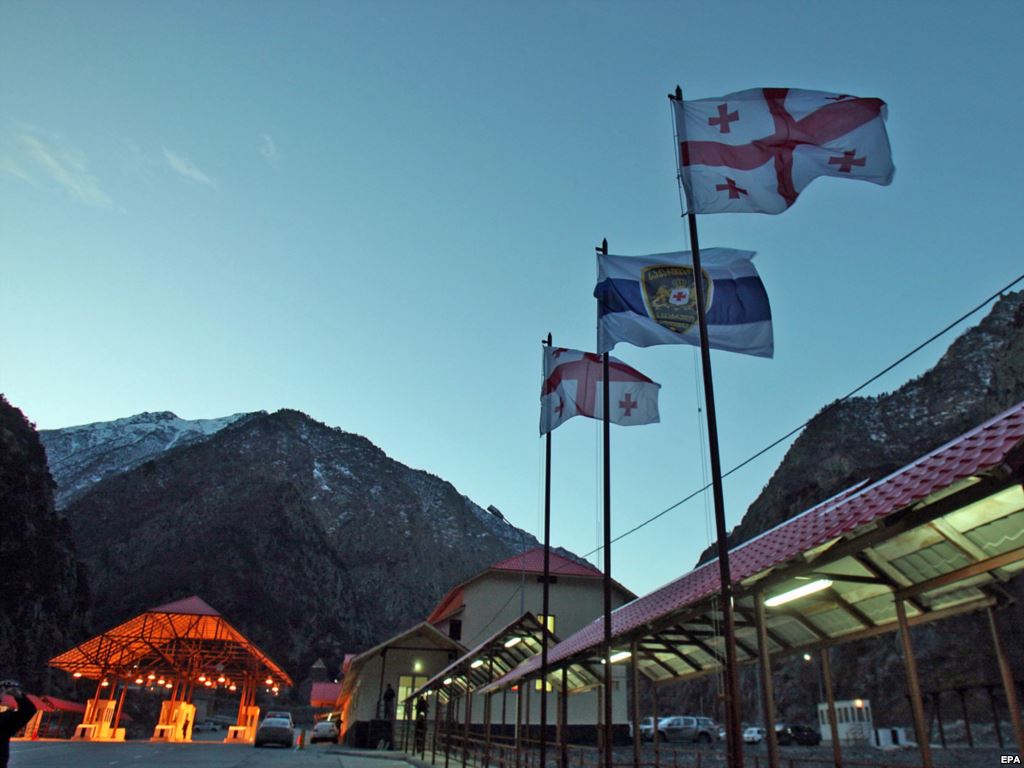
Georgia Will Not Turn Away from the North Caucasus, Expert Says
Publication: Eurasia Daily Monitor Volume: 10 Issue: 183
By:

Following the August 2008 Russia-Georgia war, President Mikheil Saakashvili took unprecedented steps to reach out to the North Caucasus (see EDM, May 9, 2012). His government launched multiple “soft power” initiatives as well as cross-cultural and educational exchanges to open the republics of the North Caucasus to Georgia and, by extension, to the rest of the world. Consequently, the defeat of Saakashvili’s party at the polls to Georgians advocating for better relations with Moscow led to widespread speculation in Tbilisi, in Moscow and in the West that the next Georgian government would sacrifice its ties with the region in pursuit of warmer ties with Russia. But Russian behavior since that time—including shifting the South Ossetian border (see EDM, September 23, October 2) and naming a Russian hero of the August 2008 war against Georgia as an Olympic torchbearer (Civil Georgia, October 9)—has convinced many in Tbilisi that it would be a huge mistake to turn away from the North Caucasus. Ever more Georgians appreciate that if their country does so, Moscow will simply pocket the concession and then step up the pressure on Georgia and its neighbors.
Indeed, Andro Gabisonia, the deputy director of the Circassian Center that Saakashvili helped set up, argues that “there will not be a ‘pro-Russian’ policy [of that kind] unless we are drowned in blood” (apsny.ge/interview/1381349662.php).
Gabisonia acknowledged that after the October 2012 parliamentary elections, the new government in Tbilisi made several mistakes regarding the North Caucasus, including ending the program for training North Caucasian students. But he said officials soon recognized that any “weakening” of Tbilisi’s policies in this area was “fraught with the loss of allies in the region. We must always remember that our neighbors are in the Caucasus. Empires come and go, but the Caucasus remains, and we have to live alongside the neighbors. Their well-being is directly connected with our well-being. Certainly, the current authorities needed a certain time to recognize the importance of this direction [in policy].”
But those who said that the post-Saakashvili government would sell out the North Caucasus have been proven wrong, Gabisonia says. Georgia is not conducting—and in the absence of a forced occupation, will not conduct—a policy dictated by the Kremlin.
Moreover, as some forget, Saakashvili will soon leave office, but he and those who think as he does are not leaving politics, the Circassian expert says. Georgia is not a country like some others where people, once they achieve office, stay there forever. Instead, the country has real elections and a real rotation of elites. But this election was not the apocalyptic event that some have suggested. Georgia continues on its pro-Western course, Gabisonia argues, and those who want a pro-Russian one are marginal and found only among a generation that is dying out.
Instead, Georgia is an increasingly normal country where “today, one party has the power, and tomorrow another one.” That in turn means that Georgian policy is not going to go “from one extreme to the other” but rather develop within the national consensus—and that includes not just a desire to root Georgia permanently in the West but to also have good relations with its neighbors in the Caucasus.
As evidence of this, Gabisonia points to three issues: the Olympics, Russian behavior in South Ossetia, and support for the Circassian Center in Tbilisi. “Of course, it would be good to take part in the Games together with the civilized community and in a civilized place,” he says. “But ask yourself: do we have the moral right” to do so in a country that continues to occupy part of Georgia and in a way that makes Georgians look like clowns? A month ago, it appeared that Georgia would go to the Games and even cooperate with Russia on security; but now, after Moscow ignored Tbilisi’s offer and insulted the country by naming one of the aggressors of the 2008 war to be a torchbearer, opinion is shifting. Even if Georgian athletes go, it is very unlikely that any senior official will do so.
Russian behavior in the breakaway region of South Ossetia, where Russian border guards are unilaterally shifting the administrative border further and further into Georgia proper, demonstrates that Moscow has no intentions of behaving like a good neighbor, Gabisonia says. Georgians recognize this, and they are not going to collaborate with the Kremlin. Instead, they will continue to pursue a closer alliance with the West. By behaving as it has, Russia is revealing its imperial nature and giving up any chance for good relations with its neighbors or even its own population.
Finally, Gabisonia notes, Georgian parliamentarians have made clear that Tbilisi intends to cooperate with the Circassians in the future. Consequently, they are not about to close down the Circassian Center in Tbilisi, as some have suggested, because, in Gabisonia’s words, they are very much aware that such a step would cost Georgia some of its friends. It may modify some programs, he concludes, but it will not change the basic thrust of Georgia’s North Caucasus policies (hekupsa.com/cherkesiya/sobytiya/1740-cherkesskij-kulturnyj-tsentr-obsuzhdalsya-v-parlamete-gruzii).




